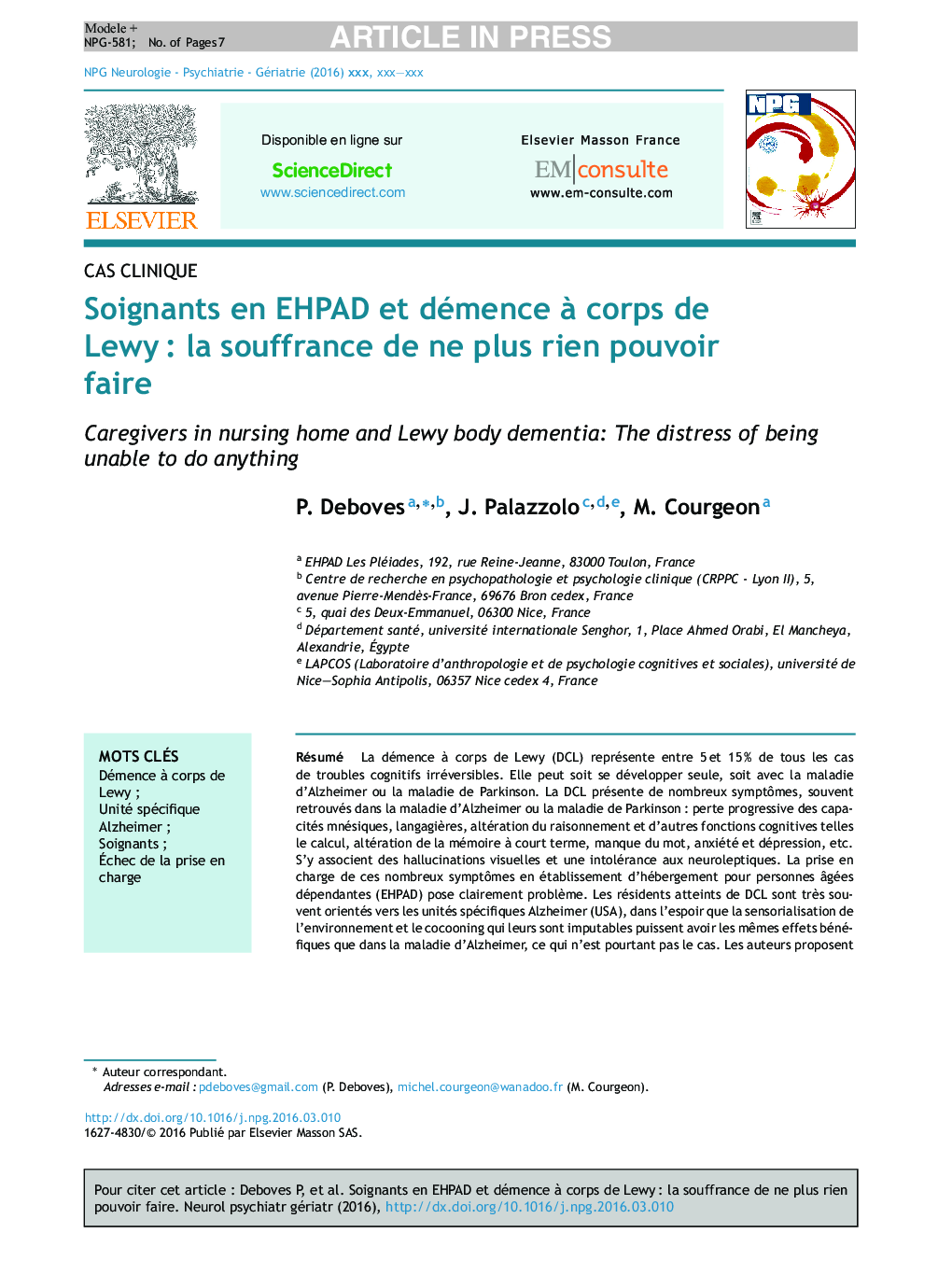| Article ID | Journal | Published Year | Pages | File Type |
|---|---|---|---|---|
| 5662780 | NPG Neurologie - Psychiatrie - Gériatrie | 2017 | 7 Pages |
Abstract
Lewy body dementia (LBD) accounts for between 5 and 15% of all cases of irreversible cognitive disorders. It can either develop alone, or in association with Alzheimer's disease or Parkinson's disease. DLB has many symptoms, often found in Alzheimer's or Parkinson's disease: progressive loss of memory and language, impairment of reasoning and other cognitive functions such calculation, impaired short-term memory, aphasia, anxiety and depression. There are sometimes visual hallucinations, and neuroleptic intolerance. The management of the many symptoms in nursing homes is clearly a problem. Residents with LBD are often oriented towards specific Alzheimer units, in the hope that the sensorialisation of the environment and its characteristic cocooning will have the same beneficial effects as in Alzheimer's disease. This is however not the case. The authors propose here to discuss the problematic issues of the care of residents with LBD in Alzheimer units, focusing on the necessary support to caregivers faced with their inability, both medical and therapeutic, to manage behaviors related to DCL.
Related Topics
Health Sciences
Medicine and Dentistry
Geriatrics and Gerontology
Authors
P. Deboves, J. Palazzolo, M. Courgeon,
